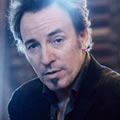Just the other night my husband and I were discussing some world event in which Muslims came out looking bad, and we agreed on the totally obvious fact that the worldview about Islam had profoundly and irrevocably changed since 9/11. But, my husband said, “In the eight years that I’ve been in this country, I’ve never felt singled out or have been harassed.”
I echoed that sentiment. I was born here, and raised in the Midwest, where for the longest time we were the only Muslim family around. Then my life took a 180-degree turn, when I married and moved to New York, which is where we were on 9/11. Still, in the midst of all that awfulness, I felt that Islam had been hijacked, but all Muslims hadn’t.
Even when I started wearing the hijaab (headscarf) last year, I felt okay. Heck, it takes a lot to make New Yorkers turn their heads and look at you. And now, living in Virginia, on the footsteps of Bible country, being an obvious Muslim is quite all right.
But as I sat in a movie theater on a Tuesday afternoon and endured “United 93,” for the first time I wanted to hide my Muslim-ness. I went to see how director Paul Greengrass portrayed the characters of the terrorists. Of course there’s nothing remotely decent that can be said about the cowards. But I wanted to see how their faith was shown in the movie.
Based on more than two dozen phone calls from passengers on the doomed flight, about 30 minutes of flight recorder data, and meticulous research into what passed between the FAA and the military on that fateful day, Greengrass paints as accurate a portrait as one can without knowing for sure what happened on United 93. And that’s probably what freaked me out.
Who knows for sure what those terrorists said or did on that flight, or how they wrongly invoked their faith to fire themselves up for their suicide mission? Greengrass has them saying “Allah Akbar” (God is great) and the Shahada (the statement of faith recited by converts, and which we are taught to say when facing death). Though it burned me to hear them say that–to hear these terrorists invoke those holy words as they went about their sacrilegious task–I agree that that was probably what they were saying.
What hurt me most was the opening scene of the film, which showed the leader of the United 93 cell reading the Qur’an, and showed the other terrorists praying. Maybe they indeed did this. They looked devout, so certain that God wanted them to do this, that being Muslim meant embarking on this horrific jihad. But that is so not the case. In the five years past, this point has been hammered home: Islam is not a religion of terror, jihad is not about suicide missions and targeting innocents, and a small group of unhinged terrorists do not represent the world’s Muslim community.
But the film’s representation of the terrorists, especially that first scene, just opened up all those old wounds. Greengrass said he specifically included that scene to show how Islam was hijacked by the terrorists. But for that to work, the movie-going public must differentiate between extremists who grossly misuse the religion and the rest of the Muslim community, who read the same Qur’an and pray the same prayers, and yet live a peaceful life.
I’m not saying that Greengrass shouldn’t have shown the terrorists doing their religious activities. And I realize that depicting more of the terrorists’ background–say, drinking and visiting strip-club, which we know they did–would take away from the movie’s focus on the United 93 passengers. I guess I’m just really scared that viewers won’t realize that in acting religious, the terrorists had indeed hijacked Islam.
After watching a National Geographic program about the terrorists last summer, which explored their un-Islamic behavior prior to Sept. 11, I said to my husband, “What kind of Muslims are these?” He replied to me, “That’s the thing—they aren’t Muslim. No matter what they say, they aren’t Muslim.”
And that’s what I want to remind all those who see this film. Maybe these guys did read the Qur’an. Maybe they did act “holier than thou” in the last moments. But they were bad–the faith is not. See the film and remember the sacrifices of the day. But don’t forget what post-9/11 has taught us about faith, the faith of Muslims, the faith of Americans, the faith we all share.


